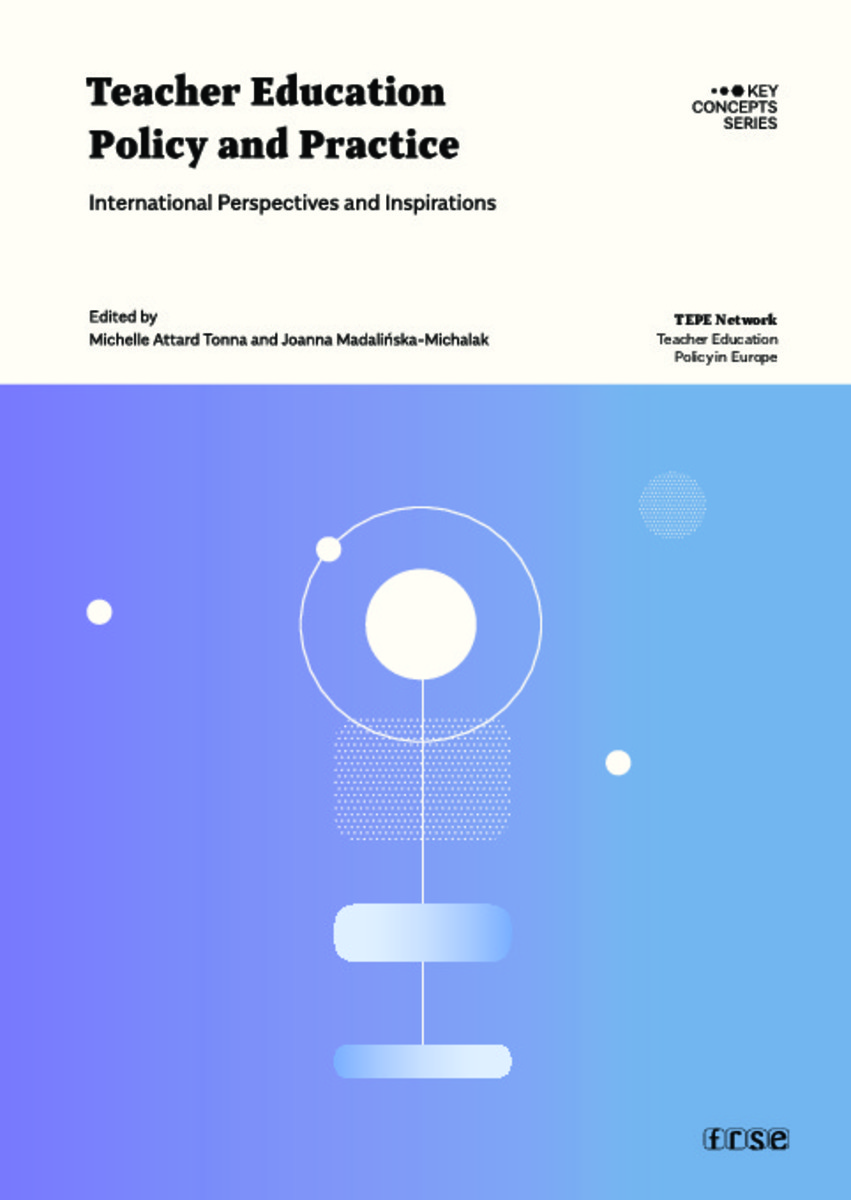Mostrar el registro sencillo del ítem
Competency frameworks for teachers: a contribution from the European education policy
| dc.contributor.author | Manso, Jesús | |
| dc.contributor.author | Sánchez-Tarazaga, Lucía | |
| dc.date.accessioned | 2019-02-21T07:58:29Z | |
| dc.date.available | 2019-02-21T07:58:29Z | |
| dc.date.issued | 2018 | |
| dc.identifier.citation | Manso, J., Sánchez-Tarazaga, L. (2018) Competency frameworks for teachers: a contribution from the European education policy. En: Tonna, M. A., Madalińska-Michalak, J. (ed.) Teacher Education Policy and Practice: International Perspectives and Inspiration. Warsaw: Foundation for the Development of the Education System, Key Concepts Series vol. 1, p. 80-101 | ca_CA |
| dc.identifier.isbn | 9789949290239 | |
| dc.identifier.uri | http://hdl.handle.net/10234/181444 | |
| dc.description.abstract | In this chapter we provide a review about the European educational policy regarding teacher competency frameworks. The European Union acknowledges the importance of conceiving the teacher profile based on a framework with the required professional competencies to face the challenges of the new context and strengthen the teaching profession. What we tackle here are the fundamentals of those competency-based patterns from the most recent regulation’s review in Europe in the field of education, regarding three key aspects: concept, design and implementation. Firstly, we have to pay attention to the concept. There is a continuing controversy over how to define “competency” as it is a polysemic term. Secondly, we deal with some ways to implement these frameworks across particular European policies. One of the key ideas present in the literature is the difficulty for agreement, because it requires a preliminary discussion about education goals, assumptions about learning, the expectations of society and its demands to teachers, available resources, priorities and political will, and the status of the teaching profession, among others. Thirdly, we highlight the main benefits for their implementation, such as creating a shared discourse about the teaching profession, providing a selfassessment tool or consistency to teacher policies. We also provide two examples of teacher competency frameworks which have been proposed by important contributors. In conclusion, this framework, as is stated in the European education policy, could interconnect initial training, selection, induction and continued development of teachers. That is, it would allow the creation of a lifelong learning structure for the teaching profession and ensure they further develop them throughout their careers. | ca_CA |
| dc.format.extent | 21 p. | ca_CA |
| dc.format.mimetype | application/pdf | ca_CA |
| dc.language.iso | eng | ca_CA |
| dc.publisher | Foundation for the Development of the Education System | ca_CA |
| dc.rights | © Foundation for the Development of the Education System, Warsaw 2018 | ca_CA |
| dc.rights.uri | http://rightsstatements.org/vocab/InC/1.0/ | * |
| dc.subject | competency | ca_CA |
| dc.subject | teacher competency framework | ca_CA |
| dc.subject | European education policy | ca_CA |
| dc.subject | teacher education | ca_CA |
| dc.subject | teaching profession | ca_CA |
| dc.title | Competency frameworks for teachers: a contribution from the European education policy | ca_CA |
| dc.type | info:eu-repo/semantics/bookPart | ca_CA |
| dc.rights.accessRights | info:eu-repo/semantics/openAccess | ca_CA |
| dc.relation.publisherVersion | http://czytelnia.frse.org.pl/teacher-education-policy-and-practice/ | ca_CA |
| dc.type.version | info:eu-repo/semantics/publishedVersion | ca_CA |
Ficheros en el ítem
Este ítem aparece en la(s) siguiente(s) colección(ones)
-
PDCSLL_Capítols de llibre [44]
Capítols de llibres escrits per membres del departament







